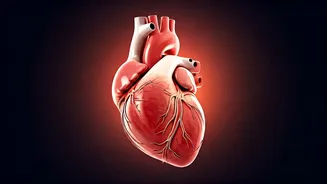Steer Clear of Smoking
One of the most detrimental habits for heart health is smoking. Individuals should make it a priority to completely stop smoking or avoid starting in the first
place. Smoking damages blood vessels, elevates blood pressure, and lowers levels of good cholesterol, creating the perfect conditions for heart disease. The chemicals in cigarettes directly harm the heart and blood vessels, leading to a higher risk of heart attacks and strokes. Quitting smoking is one of the single most impactful steps one can take to improve heart health after the age of 30, and support overall health.
Limit Processed Foods
The consumption of processed foods is another area where changes can significantly benefit heart health. These foods are often loaded with unhealthy fats, sodium, and added sugars, which contribute to weight gain, high blood pressure, and increased cholesterol levels. Therefore, one should aim to reduce their intake of processed items, such as fast food, packaged snacks, and sugary drinks. Instead, the focus should be on preparing meals at home with fresh, whole ingredients, such as fruits, vegetables, lean proteins, and whole grains. Opting for homemade meals helps control the quantity of unhealthy substances ingested, supporting a healthier cardiovascular system, and ultimately protecting the heart in the long run.
Manage Stress Effectively
Chronic stress is another element that can have a negative impact on heart health. When the body is constantly under stress, it releases hormones that can increase blood pressure and heart rate. Prolonged stress can lead to inflammation and damage to blood vessels, increasing the risk of heart disease. Incorporating effective stress-management techniques into your daily routine is crucial. These may include practices like meditation, deep breathing exercises, yoga, or spending time in nature. Additionally, getting enough sleep, maintaining a healthy social life, and engaging in enjoyable activities can significantly alleviate stress levels. Individuals should also make sure to seek professional support if needed, to help address stress effectively.
Prioritize Regular Exercise
Regular physical activity is an indispensable component of a heart-healthy lifestyle. After the age of 30, consistent exercise becomes increasingly important to maintain cardiovascular fitness, regulate weight, and lower the risk of heart disease. Aim for at least 150 minutes of moderate-intensity exercise or 75 minutes of vigorous-intensity exercise per week. These exercises can include brisk walking, jogging, swimming, cycling, or any other activity that elevates your heart rate. Incorporating both aerobic exercises and strength training is ideal. Physical activity helps in lowering blood pressure, improving cholesterol levels, and strengthening the heart. Regular exercise enhances overall well-being and is a key preventative measure for heart problems.















